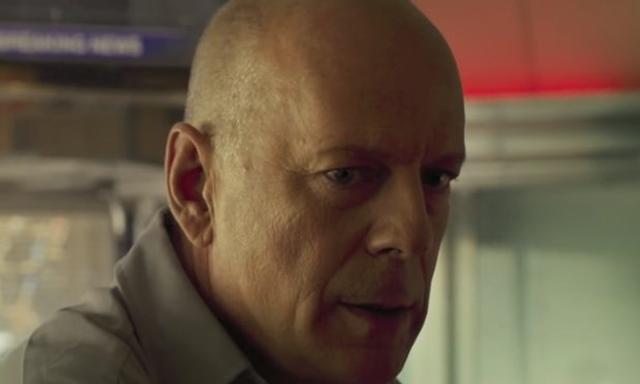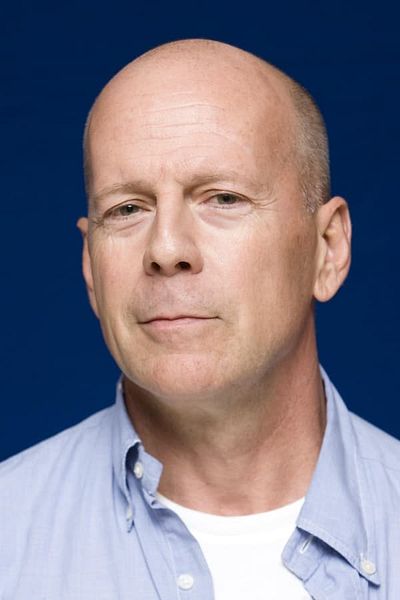Bruce Willis will, forever more, be associated with Die Hard. That's not an opinion, that's a fact.
The film is a masterclass in action direction, Willis' charm and bravado lights up the screen, it's been analysed to death and it's easily the best of the series. Of course, Bruce Willis first came to prominence with TV's Moonlighting as the likable private detective next to Cybil Shepherd's demanding diva. At that time, the progression from TV actor to movie actor was incredibly difficult and few survived it - Bruce Willis and George Clooney being the two most notable examples of it during that time period.
After Die Hard came out, Willis was canny enough with his career to follow up with dramas like In Country, Sunset, Bonfire Of The Vanities and even broader comedies like Look Who's Talking. In between these, he had movies like Die Hard 2 and The Last Boy Scout, following on with clunkers like North and Hudson Hawk. The point, basically, was that Willis was able to diversify his roles. It wasn't all just action movies, and while not all of them worked, he was able to lend his considerable talent to any genre.
If you take a look at Bruce Willis' IMDb page now and the work he's done in past couple of years, it's littered with straight-to-video clunkers. Once Upon A Time In Venice barely got a theatrical release and is now on Netflix. Marauders was a straight-to-VOD crime thriller that saw Willis paired up with Dave Bautista and Christopher Meloni. The list goes on, almost all of them receiving poor reviews and largely ignored by audiences alike.
The last time Willis had a major role in a theatrically-released film that made decent box office and was well-received by critics was as far back as 2012 when he starred in Wes Anderson's Moonrise Kingdom and Rian Johnson's Looper. Oddly enough, that same year, Willis was in Fire With Fire - a laughably bad thriller about firefighters - and The Expendables 2, alongside fellow action icons Arnold Schwarzenegger, Chuck Norris and Sylvester Stallone. While The Expendables 2 wasn't a critical smash, it was moderately successful with audiences and was well-liked enough to warrant a third one - and it's perhaps here where we see why Bruce Willis has fallen so far.
Bruce Willis walked away from The Expendables 3 because Sylvester Stallone, who was the executive producer and creator of the trilogy, refused to meet his demand of $1,000,000 per day on the set. At the time, THR reported that Willis was offered $3,000,000 for four days of shooting in Bulgaria - but refused and demanded an extra million. Stallone, furious at Willis' demands, called him "greedy and lazy" and wrote him out of the script. They've since buried the hatchet, but it says a lot about what was important to Willis. Look, let's not kid ourselves - The Expendables 3 was by no means a meaningful indie drama that has the kind of writing and dialogue that actors get into the business for. It was the third part of a successful action franchise and Willis wanted more money because, well, he thought he deserved it.
From 2013 on, Bruce Willis starred almost exclusively in low-rent action duds like A Good Day To Die Hard, RED 2, The Prince, and the aforementioned movies. The odd one out was Rock The Kasbah, which paired Willis with Bill Murray and director Barry Levinson. The film was a critical and commercial failure and Willis, for his part, had only a small role in it. Just this week, Death Wish released in Irish cinemas. The film wasn't screened for press and US reviews have been particularly unkind to it.
Actors go through hot streaks, and casting directors follow the trends of audiences to suit whatever's clicking - so it makes sense that Bruce Willis, who's had considerable success from the late '80s right through to the early '00s, would tap out fora few years and keep himself in work by taking a few paycheque roles. But should it last six years? Absolutely not.
To his credit, he does appear to be attempting to correct the trend by reuniting with M. Night Shyamalan for Glass, the sequel-of-sorts to Split and Unbreakable, and a crime drama directed by Edward Norton called Motherless Brooklyn. It's interesting to note that a director whom Willis worked with on a number of occasions - Barry Levinson - has now drifted into peak television, helming the well-received biopic of disgraced football coach Joe Paterno, with Al Pacino in the leading role. While Bruce Willis has dipped his toe back into television with a couple of episodes of Friends and a few cameos here and there, they've all largely been glancing appearances and nothing of substance.
Given how broad the textures and genres are in television nowadays, and how broad Willis' career has been over the years, something like a prestige miniseries might just be the ticket for Willis. Plenty of actors of his calibre have done it already. Kevin Costner scooped up his third Golden Globe in 2013 for Hatfields & McCoys, a three-part miniseries on the History Channel. Colin Farrell, Vince Vaughn and Rachel McAdams both led True Detective's second season whilst Matthew McConaughey and Woody Harrelson took the opening season. Don Cheadle took on House Of Lies whilst Terence Howard made Empire, both of which were successful for both actors.
Willis is clearly looking for work that'll challenge him. In 2015, he starred in the stage adaptation of Stephen King's Misery, from a script by William Goldman and paired with Laurie Metcalf in the role of Annie Wilkes. Though the production was savaged by critics, it was one of the first forays by Willis into theatre.
Why not try his hand at a TV role in a more serious fashion?




















































































